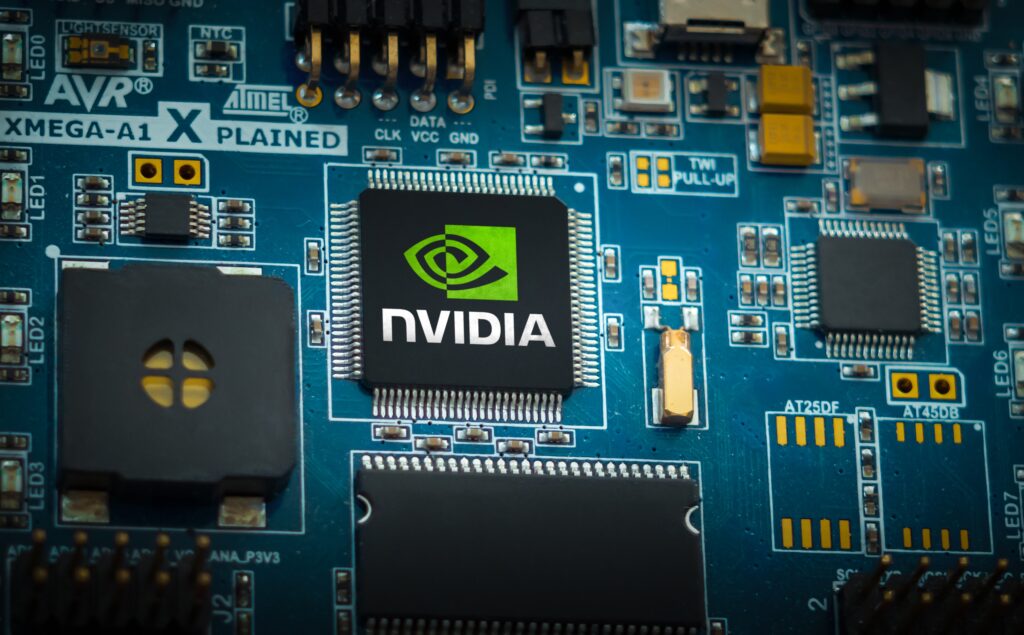Nvidia, the world’s top maker of AI chips, is facing fresh trouble. The United States has just announced strict new rules. These rules stop Nvidia from selling one of its key AI chips, the H20, to customers in China—unless it gets a special license. As a result, Nvidia may lose up to $5.5 billion from blocked sales.
The move is part of a growing tech war between the U.S. and China. Both countries want to lead the future of artificial intelligence. Now, the U.S. is tightening its grip on the supply chain for powerful computer chips.
Why Nvidia Matters in the AI Boom
Nvidia’s chips power the tools behind generative AI. These tools include popular platforms like ChatGPT and many more. With the rise of AI across industries, demand for Nvidia’s chips has surged. In fact, in late 2024, Nvidia briefly passed Apple in value. This made it one of the most valuable tech firms in the world.
AI training models need huge amounts of computing power. Nvidia provides that power with its high-end chips. Because of this, the company plays a central role in global AI growth. But this growth has also put it at the center of political tensions.
New Export Limits Target H20 Chip
The U.S. first began blocking high-end AI chips to China back in 2022. That action was meant to stop China from gaining too much ground in military tech and AI development.
To stay within those rules, Nvidia designed a chip called the H20. It was slightly less powerful than banned versions but still useful for many AI tasks. Chinese tech giants like ByteDance, Tencent, and Alibaba placed large orders for it.
But with China’s AI companies gaining speed, the U.S. is now clamping down even harder. One company, DeepSeek, claims it can match ChatGPT’s performance using only the lower-tier chips it can legally buy. That raised fresh alarms in Washington.
Now, even the H20 chip is caught in the middle. The new U.S. rules require Nvidia to apply for licenses before shipping it to China. These rules went into effect right away—no grace period. Nvidia says this sudden change has already blocked billions in sales.
Jensen Huang Flies to Beijing
In response, Nvidia CEO Jensen Huang flew to Beijing on Thursday. His visit came just days after the new rules were announced. Huang’s goal: to show Chinese leaders that Nvidia still values its business in the country.
China accounted for about 13% of Nvidia’s sales last year. While that’s less than what it earns in the U.S., it’s still a major market. During his visit, Huang met with members of the China Council for the Promotion of International Trade. He also spoke with DeepSeek’s founder, Liang Wenfeng.
In public statements, Huang stressed that Nvidia wants to continue working with Chinese tech partners. He also met with top economic leaders and the mayor of Shanghai. These meetings were part of a clear effort to keep relationships strong—despite the political strain.
China Ramps Up Domestic Chip Efforts
Meanwhile, Chinese companies are not sitting still. Tech giants like Huawei are investing heavily in making their own chips. Right now, these homegrown chips are not as strong as Nvidia’s. But experts say that U.S. bans may only speed up China’s drive to build better AI tools on its own.
Some warn that the short-term gains from export controls could lead to long-term risks. “Blocking chips may hurt China now,” said one industry analyst in Beijing. “But it also gives them a reason to build better tech faster.”
U.S. Pushes for Local Chip Manufacturing
Back in the U.S., the Biden administration is also pushing for more chip production at home. Washington wants to make sure America stays ahead in the AI race. That includes moving more of the chip supply chain to U.S. soil.
Nvidia recently announced a plan to invest as much as $500 billion in new AI server infrastructure in the U.S. Its chip-making partner, TSMC, also pledged another $100 billion to expand U.S.-based manufacturing lines.
Former President Donald Trump claimed that his campaign helped influence Nvidia’s choice to invest more in the U.S. This marks a shift where both major political parties see AI and semiconductors as national priorities.
The Future of AI is Now Political
The Nvidia-China situation shows how much global tech has changed. What used to be a free-flowing market is now split by rules, controls, and political motives. Many experts believe the tech world is heading toward two separate systems: one led by the U.S., and one by China.
This means companies like Nvidia must walk a fine line. They need to grow globally, but also follow rules at home. For now, the company is doing its best to keep both sides open—while staying out of the crossfire.
Nvidia’s $5.5 billion problem shows how deeply AI is tied to global politics. As chip wars heat up, tech firms must balance business, diplomacy, and security. The future of AI may be as much about policy as it is about innovation.


